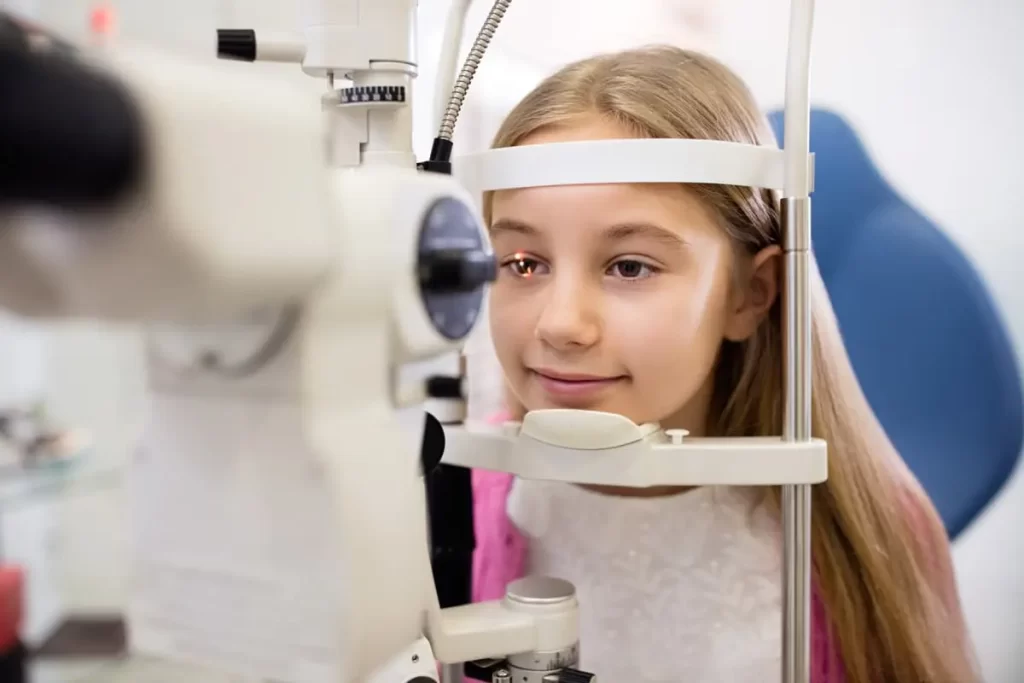Exploring the Multifaceted Nature of Vision: Beyond Basic Clarity
It is a widespread misconception that an optometrist is primarily involved in providing prescriptions for corrective eyewear or offering solutions for dry and fatigued eyes. However, it is vital to understand that numerous visual challenges exist which extend far beyond the singular issue of blurry vision. There are multiple scenarios where the eyes may appear entirely healthy, yet individuals may experience complications such as difficulties in reading comprehension, stagnation in academic performance, or significant issues with concentration and focus during daily activities. Recognising these subtle yet critical signs is essential for effectively addressing underlying vision issues that could otherwise remain undetected and untreated.
At Eyes by Design, our emphasis lies on behavioural optometry, a sophisticated clinical practice that goes beyond merely achieving clear vision. Our methodology prioritises the holistic visual system and its crucial role in enhancing learning performance and facilitating everyday tasks. This perspective recognises that vision is not just a fixed state but rather a dynamic interplay involving the eyes, the brain, and the body, all working in concert to create a seamless and effective visual experience.

Unpacking the Core Principles and Advantages of Behavioural Optometry
Behavioural optometry, often termed functional or developmental optometry, is founded on the premise that clear vision is merely the beginning of a comprehensive visual experience. For vision to truly benefit individuals, the eyes must operate efficiently, track movements accurately, adjust focus seamlessly, and communicate information to the brain effectively, thereby supporting movement, posture, memory, and learning processes.
This inclusive approach encompasses several essential components:
- Effortless tracking across books, pages, and digital screens
- Rapid and reliable focusing across varying distances
- Effective coordination between both eyes to ensure optimal performance
- Enhanced spatial awareness and body control for improved functioning
- Accurate visual processing during real-time activities
A behavioural optometrist conducts thorough evaluations of these interconnected systems. The primary aim is to determine not only whether you can see clearly but also if your visual system is functioning optimally to support your daily activities and social interactions.

Recognising Essential Indicators That Visual Challenges May Be Affecting Your Life
1. Your Child Struggles with Reading Despite Being Intelligent and Articulate
A child exhibiting intelligence and expressiveness yet facing challenges with reading may not necessarily have a learning disability. Instead, they might be experiencing visual dysfunction. Symptoms such as skipping lines, using fingers for tracking, or reporting that words appear to blur or shift are clear warning signs that require further examination. We carry out comprehensive assessments to observe how the eyes perform during sustained near tasks like reading, where even minor inefficiencies often go unnoticed during standard testing procedures.
2. Frequent Headaches or Eye Strain After Prolonged Screen Time
Many individuals dismiss digital eye strain as a routine occurrence; however, symptoms such as pressure behind the eyes, end-of-day headaches, or difficulties maintaining focus can indicate a breakdown in visual coordination. Through our detailed behavioural assessments, we can ascertain whether the muscles responsible for eye alignment and focus are being excessively strained due to the demands of screen-based activities.
3. Poor Coordination, Clumsiness, or Reluctance to Engage in Sports
Vision plays an integral role in facilitating movement and coordination. If a child seems to shy away from ball sports, struggles to catch objects, or has trouble maintaining balance, these behaviours may be linked to how their brain interprets visual-spatial cues. Such patterns often reflect challenges in visual-motor integration rather than a straightforward lack of athletic ability.
4. An Articulate Child Struggling with Written Assignments
Many children who are naturally curious and verbally expressive may underperform academically because they exert excessive effort to track and comprehend written material. Behaviours such as fidgeting, daydreaming, slow task completion, or reluctance to engage with reading could stem from unrecognised functional vision issues, rather than mere disinterest or defiance.
5. Persistent Challenges Despite Wearing Corrective Glasses
Some patients continue to experience difficulties even after multiple adjustments to their prescription glasses. They might struggle to relax their eyes, encounter issues with depth perception, or never feel visually at ease. This often indicates underlying problems with eye teaming or neurological processing rather than simple refractive errors.

Preparing for a Detailed Behavioural Optometry Evaluation: What You Need to Know
At Eyes By Design, we utilise a thorough, systematic, and highly individualised approach to our assessments. We meticulously analyse the way your eyes move, collaborate, and respond to various demands. Our primary focus areas include:
- Control and precision of eye movements to ensure clarity
- Flexibility and stamina in focusing to alleviate strain
- Alignment and coordination of the eyes for optimal performance
- Visual memory and cognitive load management strategies to enhance learning
- Coordination and spatial reasoning abilities to support physical activities
Based on our findings, we develop a personalised plan that may involve therapeutic lenses, vision therapy, or practical adjustments to your environment, whether in educational or workplace settings, ensuring a tailored approach towards enhancing your visual experience and overall functionality.
Understanding the Impact of Vision on Daily Life and Learning Efficiency
If you or your child are encountering daily challenges that standard eye examinations cannot illuminate, a behavioural optometry assessment may uncover the underlying factors contributing to these frustrations. This process extends beyond the mere objective of achieving clearer vision; it encompasses the pursuit of more comfortable seeing, enhanced confidence in movement, and improved learning efficiency.
At Eyes By Design in Kincumber, we are passionately committed to helping individuals realise the full potential of their vision through comprehensive behavioural care. Our holistic approach is designed to address the intricate nature of vision and its profound influence on the overall quality of life.
This article aims to enhance understanding and knowledge regarding general eye health topics.
It should not be considered a substitute for professional advice, diagnosis, or treatment.
Always consult your healthcare professional before applying this information to your health regimen.

Dr Nicholas Altuneg
For more than two decades, my foremost passion has been centred on empowering individuals of all ages to lead enhanced lives through improved vision. At Eyes by Design, we maintain that vision encompasses far more than merely the ability to see clearly or read small text from a distance; it profoundly affects your perceptions and reactions throughout each moment of the day.
Read more about Dr Nick
The Article: Signs You Need a Behavioural Optometrist first appeared on https://writebuff.com
The Article Behavioural Optometrist: Key Signs You Shouldn’t Ignore Was Found On https://limitsofstrategy.com
The Article Behavioural Optometrist: Essential Signs to Recognise was first found on https://electroquench.com

